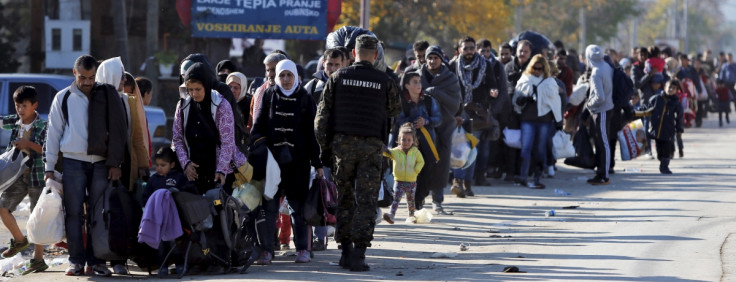Germany 'importing Islamic extremism' Angela Merkel is warned

Germany's unprecedented migrant influx is fuelling extremism which threatens to undermine the country's future stability, security and intelligence agencies have warned. Attacking Chancellor Angela Merkel's liberal refugee policy, experts argued Berlin was importing Islamic extremists and forcing upon its population unwanted high levels of immigration.
The claim was made in a security paper leaked to Welt am Sonntag. The newspaper said the document circulating among high-ranking government officials underscored concerns in the security and intelligence communities about Merkel's handling of the refugee crisis. "We are importing Islamic extremism, Arab anti-Semitism, national and ethnic conflicts of other peoples as well as a different societal and legal understanding," the unsigned document read.
A source familiar with the issue told the Sunday edition of Die Welt daily that as a consequence, local far-right groups were being given a boost. "Mainstream civil society is growing radical because many don't want migration and they are being forced by the political elite," the source said, adding that mass immigration will bring "instability in our land".
Germany has come under pressure this year as it is one of the favourite destinations for the more than 700,000 migrants who have reached European shores since January. Berlin said Germany expected to receive some 800,000 asylum seekers and migrants by the end of 2015. More than 15,000 migrants crossed into the country from Austria over last weekend only, according Bavarian Interior Ministry.
Critics say immigration numbers are so high compared to other European countries because of Merkel's generous approach, which saw the government initially pledging to welcome all Syrian refugees, sidestepping EU regulations stating that asylum-seekers should apply in the first EU country they reach. Opposition to mass immigration has increasingly escalated into violence in recent months with hundreds of attacks on refugee centres reported since the beginning of the year.
© Copyright IBTimes 2024. All rights reserved.






